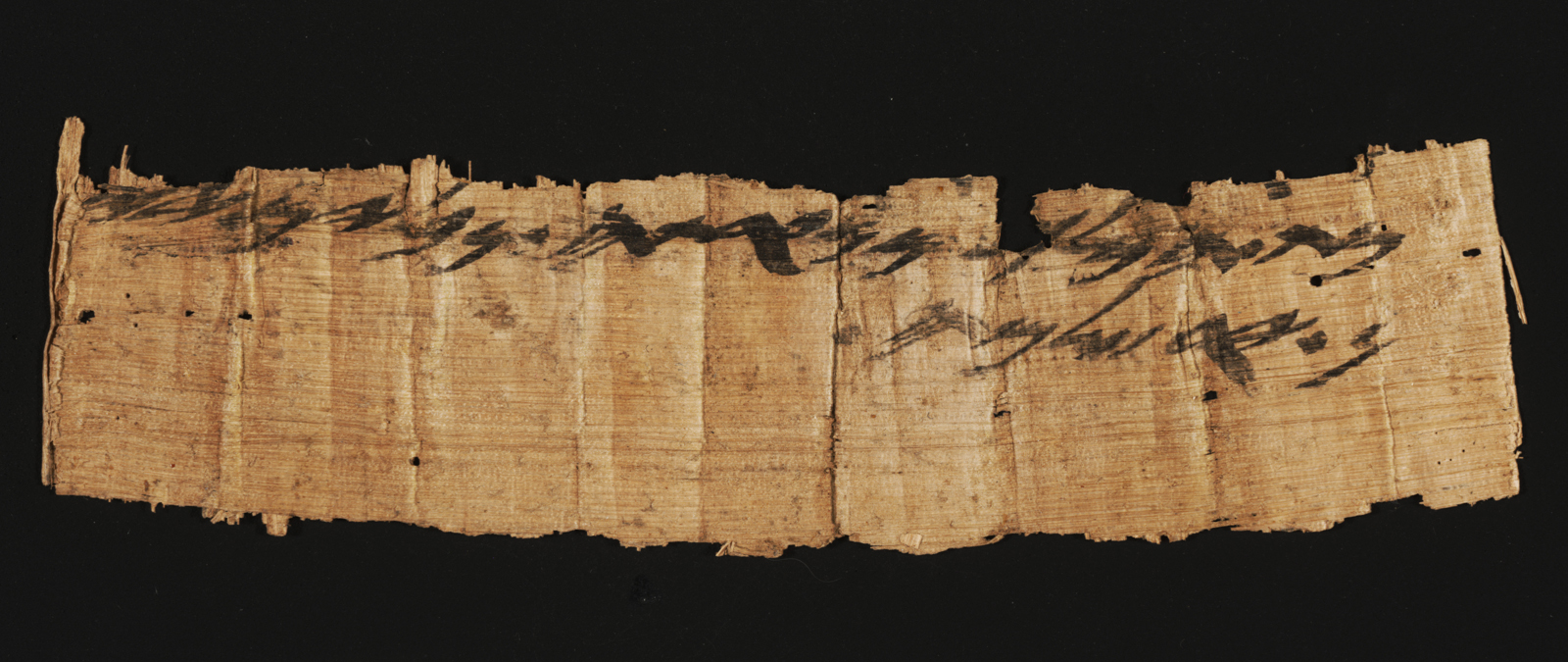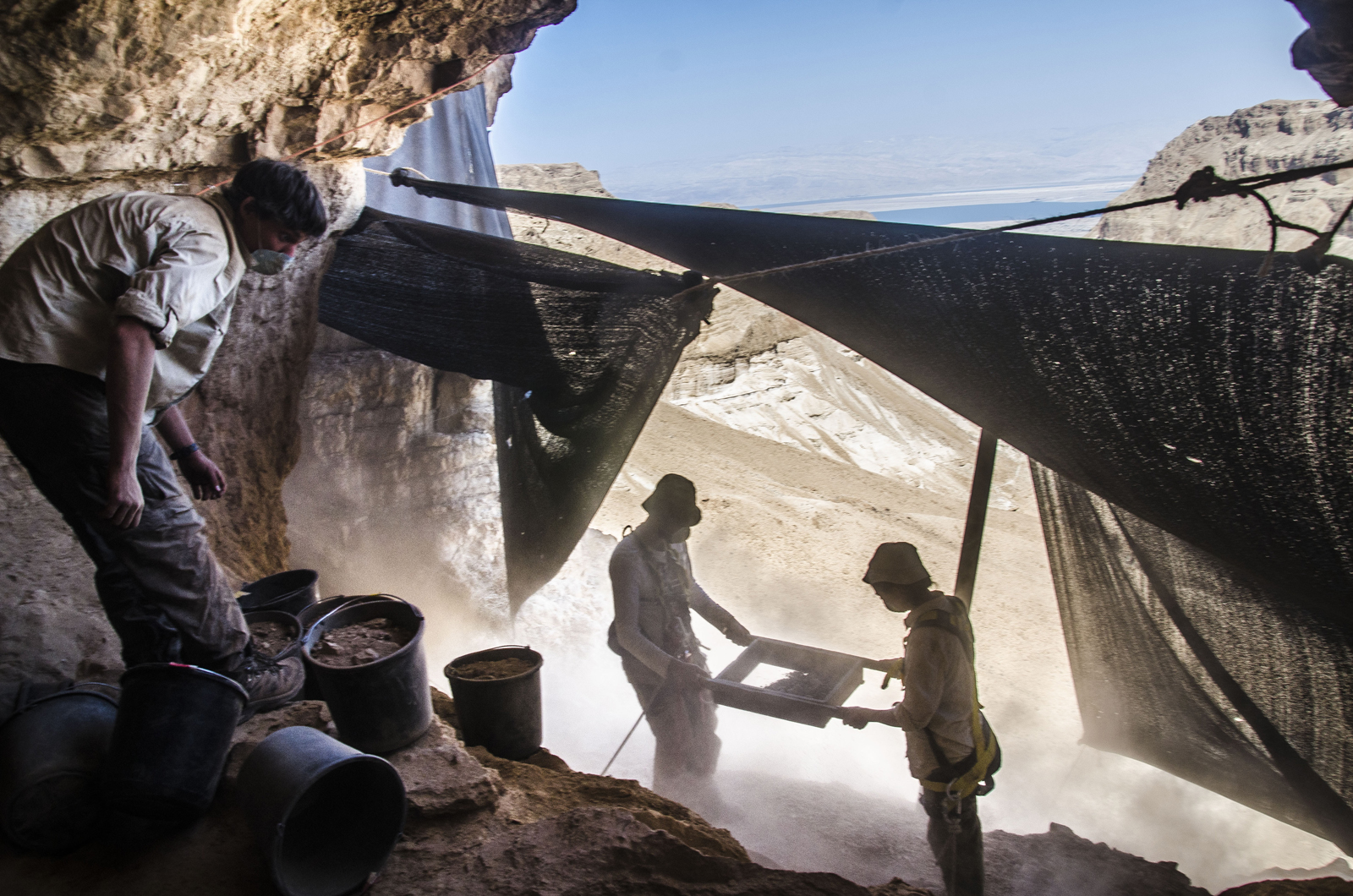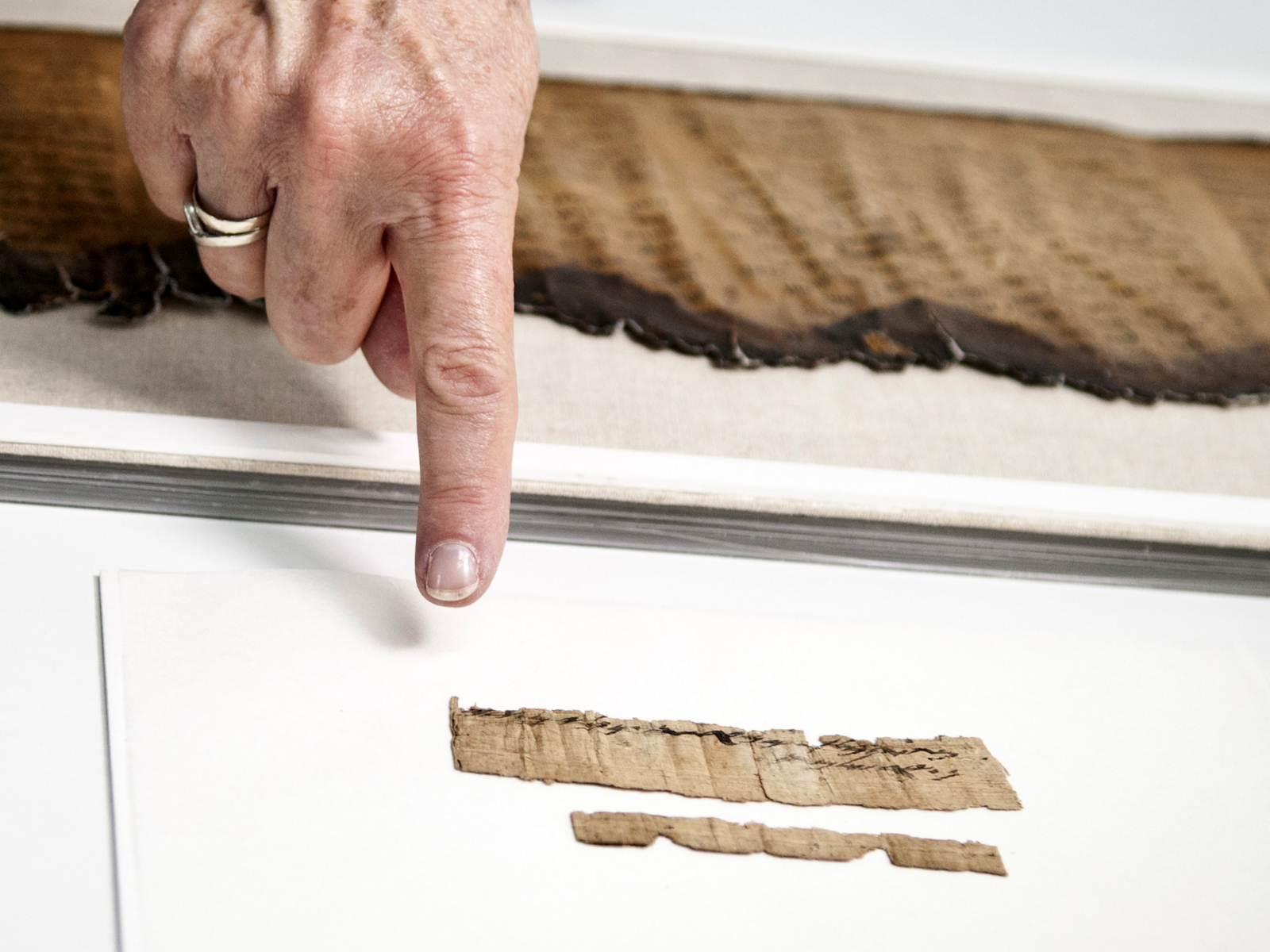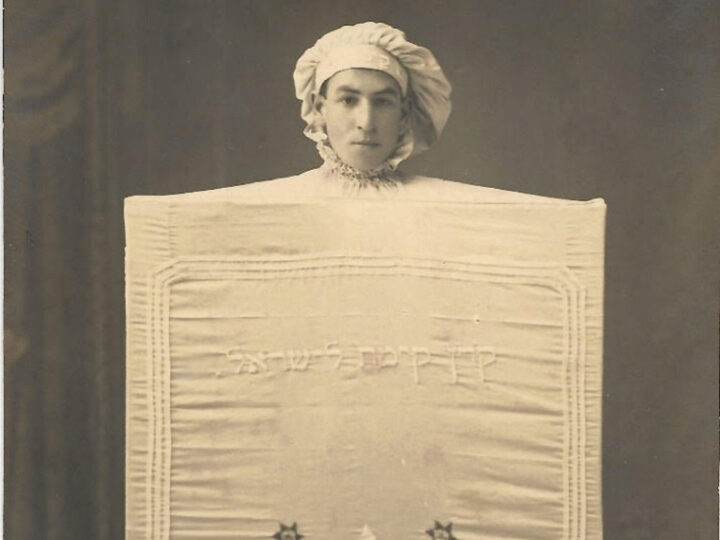The archaeology community is abuzz following the Israel Antiquities Authority announcement of a document written in ancient Hebrew on papyrus dating to the time of the First Temple (7th century BCE) in which the name of the city of Jerusalem is clearly indicated. The IAA says this is the earliest source to mention Jerusalem in Hebrew writing.
The rare document, which was illicitly plundered from one of the Judean Desert caves by a band of antiquities robbers and was seized in a complex operation by the IAA’s Unit for the Prevention of Antiquities Robbery, was presented on Wednesday (October 26) to local media.

“It’s not just that this papyrus is the earliest extra-biblical source to mention Jerusalem in Hebrew writing; it is the fact that to date no other documents written on papyrus dating to the First Temple period have been discovered in Israel, except one from Wadi Murabba’at,” said Israel Prize laureate and biblical scholar Shmuel Ahituv.
A paleographic examination of the letters and a C14 analysis determined that the artifact should be dated to the 7th century BCE – to the end of the First Temple period.
https://youtu.be/eX0k_9TQWjk
The IAA said the papyrus is a rare and original shipping document, indicating the payment of taxes or transfer of goods to storehouses in Jerusalem, the capital city of the kingdom at this time. The document specifies the status of the sender of the shipment (the king’s maidservant), the name of the settlement from which the shipment was dispatched (Na’arat), the contents of the vessels (wine), their number or amount (jars) and their destination (Jerusalem).
Na’artah, which is mentioned in the text, is the same Na’arat that is referred to in the description of the border between Ephraim and Benjamin in Joshua 16:7, the scientists said.

“The document represents extremely rare evidence of the existence of an organized administration in the Kingdom of Judah. It underscores the centrality of Jerusalem as the economic capital of the kingdom in the second half of the seventh century BCE. According to the Bible, the kings Menashe, Amon, or Josiah ruled in Jerusalem at this time; however, it is not possible to know for certain which of the kings of Jerusalem was the recipient of the shipment of wine,” said Dr. Eitan Klein, deputy director of the IAA’s Unit for the Prevention of Antiquities Robbery.
Fighting for Israel's truth
We cover what makes life in Israel so special — it's people. A non-profit organization, ISRAEL21c's team of journalists are committed to telling stories that humanize Israelis and show their positive impact on our world. You can bring these stories to life by making a donation of $6/month.








